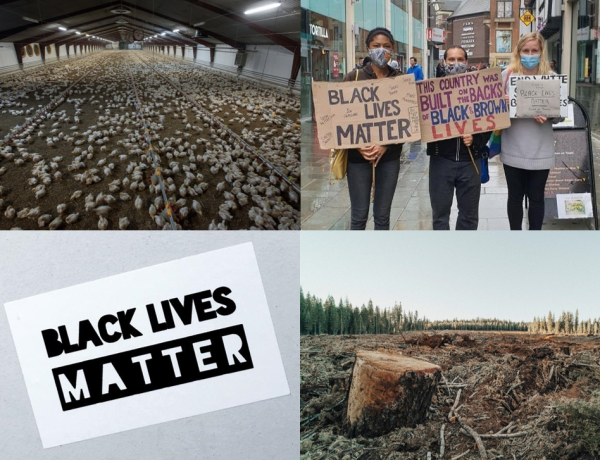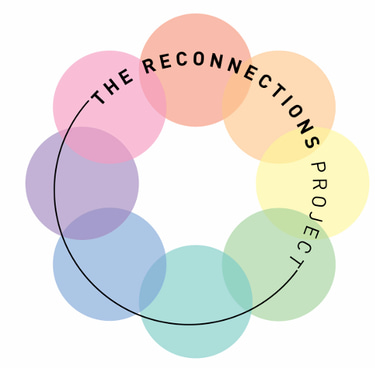A Pandemic of our own making: a reflection on COVID-19 and Black Lives Matter
Do we want to return to normal? Isn't normal what brought us here?
DIVERSITYRACISMINEQUITY
Dr Trent Grassian
10/17/20244 min read


This blog was originally posted on For Us All on 15 June 2020.
I've been trying to write this blog for over two months. But, like many, recent times have stripped me of much of my motivation and feeling of hope for the future. It is hard to feel like fighting when I'm wondering what I'm fighting for. I keep thinking: Do we want to return to normal? Isn't normal what brought us here?
So, this blog is as much for me as it is for all of us. It's a reminder of where we are. And where we need to be.
Our relationship with animals and with nature cannot continue.
We are long due for a re-evaluation of the way we (dis)regard non-human animals and the planet we call home.
Consuming 75 billion land and 2 trillion aquatic animals a year requires a lot of space, using 80% of all agricultural land (largely through the enormous amount of land needed to grow feed). It is not surprising, then, that animal agriculture is the number one contributor to biodiversity losses.
Wild animals are losing more and more of their habitat and more and more are becoming or are at risk of becoming extinct. Billions of other animals live in unsanitary, crammed spaces. The result? New diseases are born and diseases are able to quickly spread from non-human animals to humans.
Along with hunting and trading wild animals, biodiversity and land losses are likely to be the primary causes of the increase in zoonoses (diseases that spread from animals to humans), which now account for 3 out of every 4 new disease.
The 'rights' we have lost are a reminder of what many do not have
With the current state of the world and Black Lives Matter protests spreading to all 50 US states and 18 other countries, it is becoming increasingly difficult for people to ignore the present reality of racial injustice and discrimination. And it has taken something like COVID-19 to help bring this (again) into the spotlight.
For those like me, who are white and live a fairly privileged life, those of us with disposable income who have access to the resources we need and take our legally-provided rights for granted, it is easy to forget that these 'rights' should not be taken for granted.
When people who were used to being able to do what they want were suddenly told by the government to stay at home, to not go to the pub or the hairdresser, to not do the things they felt they had a 'right' to do, many became angry.
However, the true injustice is not the governmental regulations designed to save lives, but the way that COVID-19 has exacerbated existing inequalities. In the US, UK, and countries around the world, people of color are more likely to die from COVID, to be fined by police, to be in a low-paid job, to not be able to work remotely, to have fewer assets and less liquidity for an emergency, to lose their jobs and to be rejected from receiving governmental aid.
Meanwhile, billionaires are profiting to absurd degrees off the suffering of so many others.
Being 'free' does not look the same for everyone.
The perfect storm
It is no wonder, then, that the combination of rapidly increasing inequality and global frustrations around the pandemic have led to one of the biggest global movements we have ever seen. In the words of one of Black Lives Matter's co-founders, Opal Tometi:
"While we see that a lot of anger and outrage and frustration was sparked by the barbaric murder of George Floyd, it’s also clear to me that we have been sitting in our homes, navigating the pandemic, dealing with loved ones being sick, dealing with a great deal of fear and concern about what the day and the future will hold. We have millions of people who have lost their jobs and filed for unemployment and are living paycheck to paycheck and hand to mouth, and I believe they are just thoroughly fed up and thoroughly beside themselves with grief and concern and despair because the government does not seem to have a plan of action that is dignified and comprehensive and seeks to address the core concerns that the average American has".
This is further exacerbated by environmental racism:
"Whether due to targeted prejudice or resulting from ingrained institutional bias, the effects are too often the same: minority residents end up living in more polluted areas with less access to green space than their majority peers. ... The issues around environmental racism show that environmental and social issues cannot be neatly separated from each other. Resources, legal and financial, need to be made available to those affected so they can be heard when they call this discrimination out for what it is. If progress is going to be made, efforts will be needed to make the environmental movement more inclusive and to engage a much wider range of stakeholders".
So, what are the lessons I hope COVID will teach us?
'Normal' is not 'normal' or fair. We need a new normal.
We CAN stop (or radically change) so many of the industries we seem to think we rely on and make huge changes to the ways we think of and treat the environment.
The current levels of inequity are unsustainable and horrifying. We need significant reparations and wealth redistribution.
Those at the 'top' are not essential and, in fact, they are the ones who have gotten us into this mess in the first place and are now benefiting from it the most!
Those we think of as being at the 'bottom' are essential and incredibly undervalued and poorly treated. We need to listen to them, learn from them, and treat them MUCH better.
It is difficult to envision a new society, but many have already figured out the steps we need to take.
To get there, we need to center the voices of those who are most disenfranchised in our society.
Don't listen to me, listen to:
